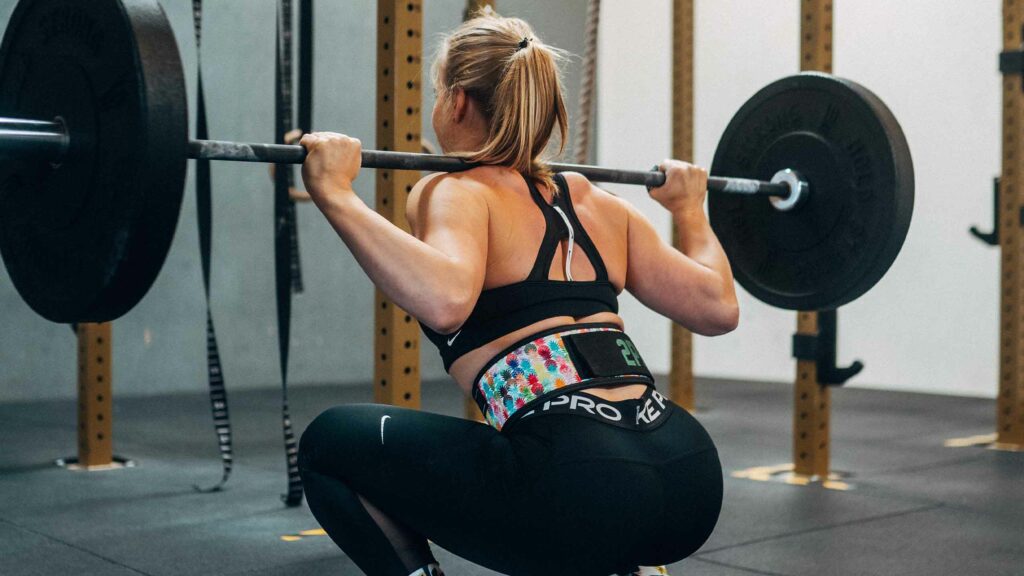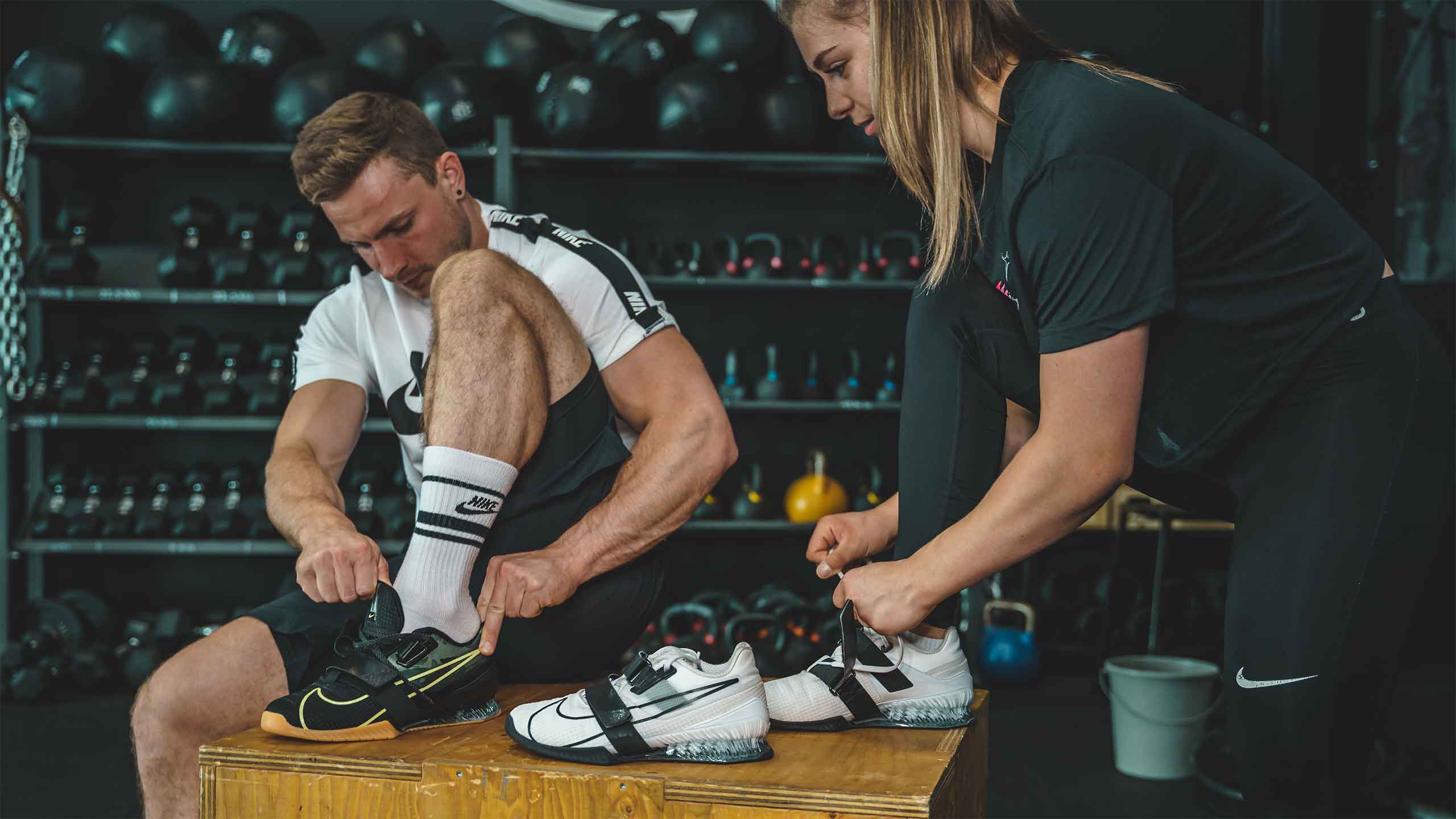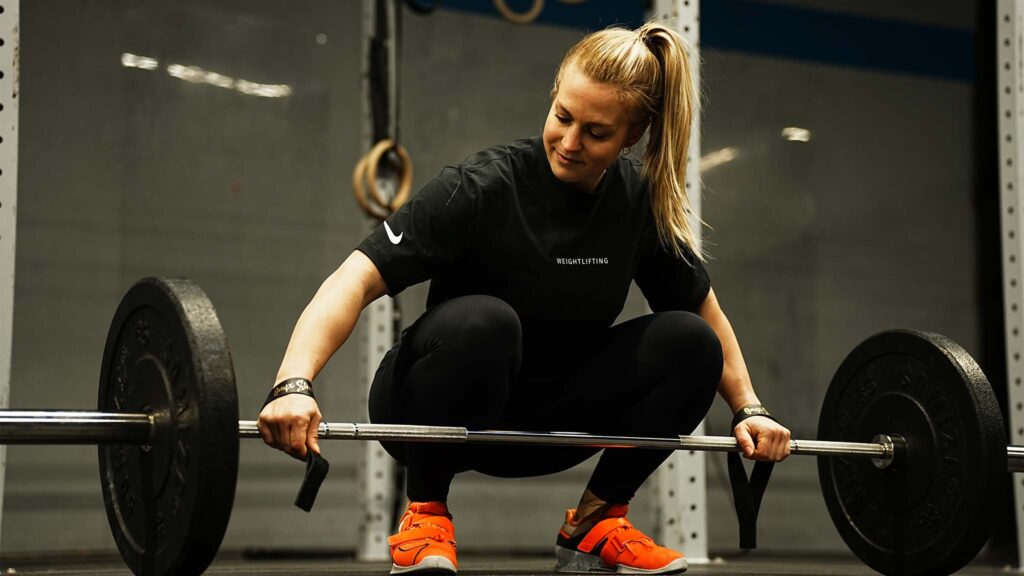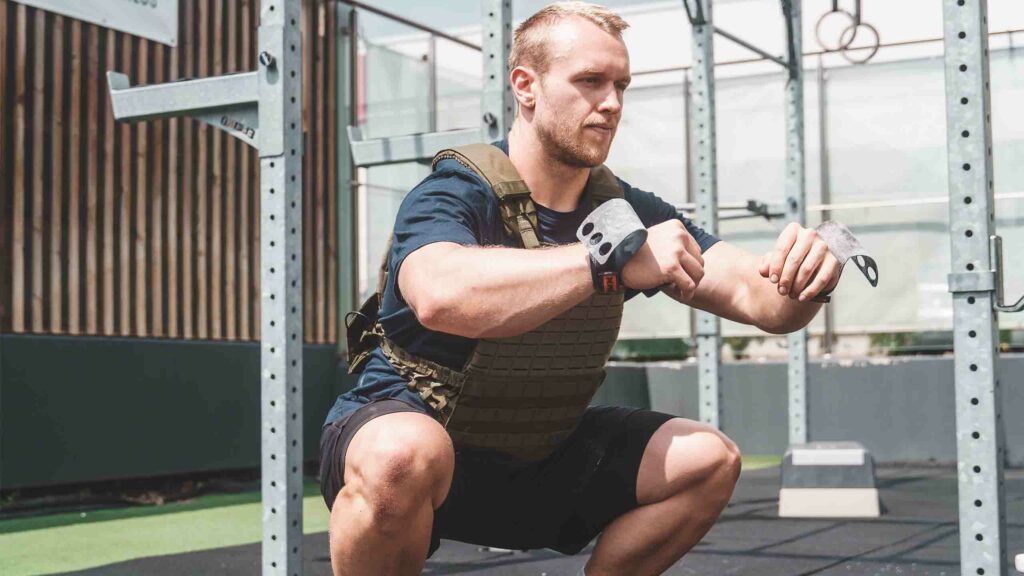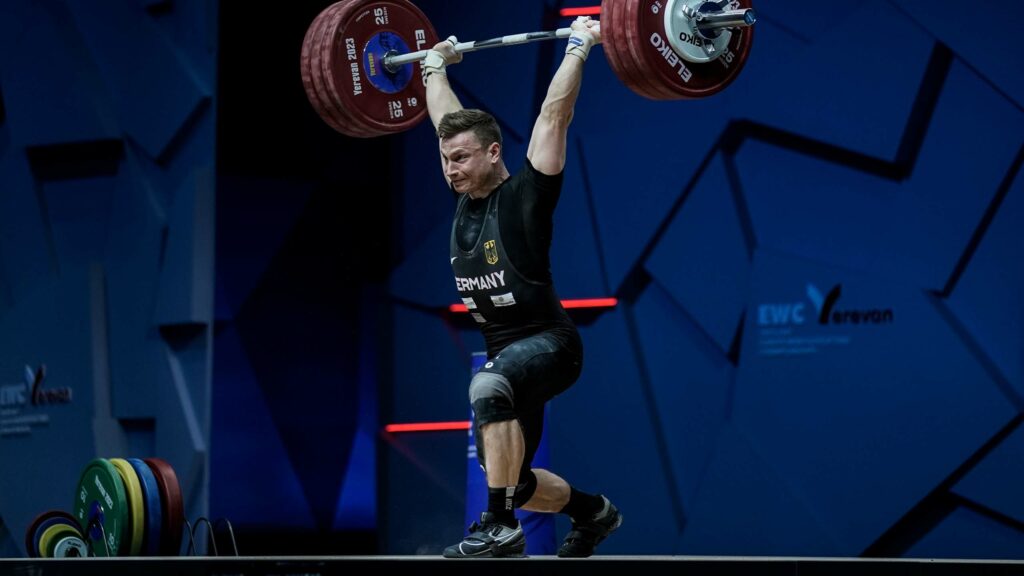This article is the first in the blog series – Nutrition for Weightlifters. In the next article we will talk about the right choice of weight class.
In the following article we will go into the basics for weightlifters – special attention should be paid to points 1. to 4. as there is a difference to other sports (team, endurance, etc.).
1. Tasks of nutrition in sports
Before we go into the requirement profile and the most important nutritional aspects for weightlifters in this article, the WHY should be clarified:
Where does the diet for weightlifters influence?
- For the general energy supply in training
- Regeneration from workouts
- Support of training adaptations
- Muscle and strength growth[1]
[adrotate group=”5″]
2. Requirement profile and transfer to nutrition
To put it simply: With the right nutrition for strength athletes, muscle build-up (muscle protein synthesis), strength performance and regeneration between workouts can be improved/influenced.
From a nutritional point of view, the basics and requirements of the sport must first be clarified.
The dominantly used energy pathways and energy stores in weightlifting are:
- Anaerobic-alactacid energy supply: ATP and creatine phosphate storage
- Anaerobic lactacid → anaerobic glycolysis or glycogen storage
Most of the energy is gained during maximum strength tests through ATP and creatine phosphate stores in the body.
What about Carbs?
Carbohydrates are our energy suppliers for training and can be stored in the liver and muscles in the form of glycogen.
- Liver – up to 100-150 g
- Muscles – 450-500 g
Also the use of glucose is in the room – basis for many low carb arguments is only the partial emptying of the muscle glycogen stores (“only” up to 30-40 %). New findings could provide more detailed information about the emptying of the glycogen stores of different muscle fiber types. Here, the intramicrofibrillary muscle fiber types 2 were emptied up to 70% during a strength training unit – whereby these muscle fiber types are decisive for the power output and thus the premature fatigue especially for strength athletes [2].
A study should not lead too quickly to general conclusions, but they are indicators that low carb will not necessarily be performance enhancing for high performance athletes in weight training.
The choice of the total amount of carbohydrates as well as the correct timing depends on the status (diet, nutritional form, training volume and intensity) of the athlete. Carbohydrate amounts between 4-8 g/kg/day make sense in order to prevent the emptying of glycogen stores and also not to negatively influence the immune system and mental performance [3].
Therefore – whoever does a high training volume is dependent on the optimal energy supply of the muscle glycogen stores and should not go into the next training with (half)-empty stores as long as there is no reason like a diet or something similar.
In point 4 we look at the timing of carbohydrates around training.
3. Proteins = strength building?
The supply of proteins (or amino acids) plays an important role in muscle protein synthesis (=building up) – if possible, muscle protein breakdown should be avoided. In addition to protein intake, training naturally also has an influence on muscle protein synthesis, which is why it is difficult to draw only isolated conclusions about muscle and strength development from protein intake. Anyone who is just starting out in strength training in particular will – without having to pay attention to protein intake – already have such training successes.
What you should remember about proteins and protein synthesis:
- Our body is constantly building up and breaking down
- Proteins play a role for muscle cells, antibodies, enzymes but also transport proteins
The total amount of protein per day should be between
1,6 – 1,8 g/kg/day
whereby higher quantities per day can have an additional positive effect on the feeling of satiety [4], but also on muscle and strength development [5].
In general we recommend a daily supply of
1,6-2,2 g/kg/day
or up to 2.3-3.1 g/kg/day of the fat-free (!) mass – if you have a calorie deficit
here we refer again to the individual needs.
Even if muscle building does not always mean power building, one does not immediately exclude the other and is dependent on many variables. In practice, we can only advise against testing the limits between muscle maintenance and muscle loss – as it is quite difficult to explain to the body during a meal that it should only use and utilize the absorbed amino acids for building strength in the leg muscles.
The figures for the total amounts of protein per day are derived from the relationships between (muscle) protein synthesis with or exclusively for
- Strength maintenance
- Muscle growth and (maintenance)
- Regeneration
- Feeling of satiation
- Mood
4. Timing around workouts
Concrete statements for the perfect timing and meal distribution are (once again) individual – however, we can make the following recommendations:
- Proteins before and/or after training are useful to support muscle building, training adaptation and regeneration [6].
- For optimal performance and prevention of premature exhaustion, carbohydrates should be provided before training – the smaller the time window between food intake and training, the more “liquid” the carbohydrates should be
- If there are less than 8 hours between two sessions, carbohydrates should be taken together with proteins after training [3]:
- Quantity: 25-40 g proteins and 0.8-1.2 g/kg carbohydrates
- If there are more hours between units, a supply of the two macronutrients brings more advantages than disadvantages with regard to training adaptation and regeneration
- Should be trained on an empty stomach, the time window after training is very important for a protein and carbohydrate intake, otherwise the following applies: total amount of protein per day is most important and the intake of protein should happen around training (whether before or after)
- 3-5 meals a day with 24-40 g proteins probably best support muscle protein synthesis
- Proteins before going to bed (especially casein) can have a positive effect on regeneration – but again, the first thing to consider is the total amount of protein per day
- If you are on a diet (a.k.a. weight class change) should consider all the above options in order to have as few negative effects (such as muscle and strength loss, regeneration deficit) as possible
To help you understand the importance of protein amount vs. timing, here is a pyramid for you:
5. Supplements – the basics
We have listed the basics for you here, of course there are always more possibilities – the need for supplements generally depends on your training status, diet and training intensity.
Please note that this is not medical advice.
Protein Powder
You should already have seen from the above mentioned findings that the total amount of protein in the day is the primary factor influencing muscle and strength building. Whether you consume the amount of protein through food or protein powder does not matter to the body. However, in two cases it makes sense to supplement protein powder:
- The total amount of protein cannot and will not only be achieved through food
- Diets such as vegan or vegetarian suggest that the amino acid profile of foods ingested is not “optimal”, so supplementation with protein powder or EAAs may make sense
Creatine
As mentioned earlier, creatine phosphate stores are one of the dominant stores used in weightlifting and serve as energy stores at loads of 30-45 seconds. Supplementation can thus increase the intramuscular creatine phosphate stores in the body.
Creatine is then relevant in the energy metabolism as a transmitter of phosphate groups and improves your strength and muscle development [7].
Form of supplemention: creatine monohydrate
Quantity: 5-6 g per day (best after training in combination with proteins and carbohydrates)
If you want more nerd info, you can let off steam with us on the creatine blog.
Vitamin D3
Optimal levels of vitamin D3 are important for bone health, immunity, inflammation in the body and (muscle) strength and performance in athletes.
Those who already have optimal levels of vitamin D3 from sunlight or supplementation can definitely not attribute a new 1RM Back Squat to the intake of vitamin D3 by additional administration – but low blood levels are associated with reduced performance.
Means: Check your D3 levels with your doctor – especially in the winter time – and otherwise adjust your “dose” according to season and serum level in consultation with your doctor.
Make sure that you take it together with a source of fat, as vitamin D3 is a fat-soluble vitamin.
We recommend an amount of: 2.000-3.000 I.U. per day
REFERENCES
[1] G. Slater and S. M. Phillips, “Nutrition guidelines for strength sports: sprinting, weightlifting, throwing events, and bodybuilding,” J Sports Sci, vol. 29 Suppl 1, pp. S67-77, 2011, doi: 10.1080/02640414.2011.574722.
[2] R. Hokken et al., “Subcellular localization- and fiber type-dependent utilization of muscle glycogen during heavy resistance exercise in elite power and Olympic weightlifters,” Acta Physiol (Oxf), p. e13561, Sep 22 2020, doi: 10.1111/apha.13561.
[3] L. M. Burke, J. A. Hawley, S. H. Wong, and A. E. Jeukendrup, “Carbohydrates for training and competition,” J Sports Sci, vol. 29 Suppl 1, pp. S17-27, 2011, doi: 10.1080/02640414.2011.585473.
[4] E. R. Helms, C. Zinn, D. S. Rowlands, and S. R. Brown, “A systematic review of dietary protein during caloric restriction in resistance trained lean athletes: a case for higher intakes,” Int J Sport Nutr Exerc Metab, vol. 24, no. 2, pp. 127-38, Apr 2014, doi: 10.1123/ijsnem.2013-0054.
[5] R. Jager et al., “International Society of Sports Nutrition Position Stand: protein and exercise,” J Int Soc Sports Nutr, vol. 14, p. 20, 2017, doi: 10.1186/s12970-017-0177-8.
[6] L. Burke and V. Deakin, Clinical Sports Nutrition. Jane Roy, 2017.[7] B. Debasis, N. Sreejayan, and K. S. Chandan, Nutrition and Enhanced Sports Performance. Muscle Building, Endurance and Strength. Charlotte Cockie, 2019.











